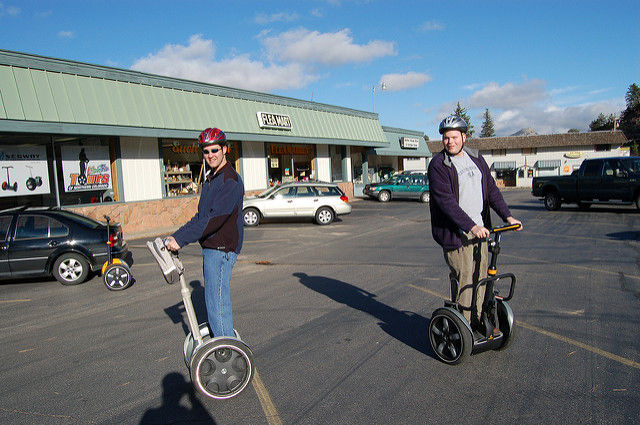
A patent complaint that Segway filed with the US International Trade Commission in 2014 has resulted in a wide-ranging order banning "personal transporters" that infringe some of its patents.
On Wednesday, the ITC issued a general exclusion order banning several types of the self-balancing devices, often called "hoverboards." The case could affect the whole market, since a general exclusion order is the commission's most powerful remedy and can affect even parties not involved in the investigation.
There's also a limited exclusion order issued directly against the products of several Chinese companies sued by Segway. Only one of those companies responded and fought the case at all, while the others were in default.
The general ban applies to any device infringing US Patent No. 8,830,048, which could be a whole lot of products. The first claim of that patent describes a transporter with a drive, wheels, a "sensor for sensing the pitch of the user support," "yaw input," and a "control loop" for determining torque. Claim 2, also included in the exclusion order, describes the same thing, where the "user support" includes a handlebar.
Segway's complaint names 13 different companies. Five companies had their cases terminated by reaching settlements or consent orders with Segway. The companies that cut a deal are Ninebot, Robstep, Shenzhen Inmotion, Tech in the City, and FreeGo USA. Meanwhile, UPTECH, UP Technology, UP Robotics, FreeGo China, and EcoBoomer all defaulted and are subject to the order. Only one company, Roboscooters, defended itself but lost its case. (The Commission's Office of Unfair Import Investigations was also named as a party, which is supposed to represent the public.)
In an odd reversal, one of the companies Segway sued in 2014, Beijing-based Ninebot, actually purchased Segway in 2015. The merged company then apparently pushed ahead with this case against its rivals.
Once the full ITC has issued an exclusion order, the president has 60 days to decide whether to accept it—and it's rare that he blocks the order. President Barack Obama overturned an exclusion order against older iPhones, the first time that a president has used that power since the 1980s.
Enforcing an exclusion order isn't simple. Lawyers for the plaintiff will have to work with US Customs to get the order enforced. Microsoft won an exclusion order in 2013 and found it so difficult to enforce it ended up filing a lawsuit to demand compliance. The ITC has the power to ban imports of goods that are found to infringe US patents. ITC investigations tend to move forward faster than federal courts, and because they can ban imports, the commission essentially has the injunction power that federal courts now rarely exercise in patent cases.
Segway's original dorky-looking standing scooters never took off. At CES this year, the company rolled out a hoverboard that turns into a robot. Segway didn't respond to a request for comment from Gizmodo, which first reported the story.
reader comments
109